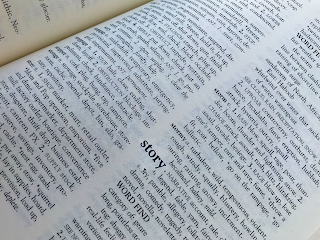MORE ALIKE, LESS DIFFERENT
-Chris Burke, Down syndrome advocate.
Last summer, on my trip to West Bengal, India, I volunteered at a school for differently-abled children. At first, all I wanted was proof of work that I would be able to submit here, at my school. But my experience there helped me more than those submitting the paperwork ever would. It gave me a new perspective on life itself, for which I am very grateful to the children there.
It all started at my Middle School, where NJHS (The National Junior Honor Society) gave me the assignment for the volunteer hours to be completed over the summer. My grandparents found the Bidhan Chandra Pratibandhi Karmakendra, ABLING THE DISABLED, (named after Dr. Bidhan Chandra Roy, former Honorable Chief Minister of West Bengal and inaugurated by Mother Teresa), as a suitable special needs school for me to finish the assignment by working there. I, at the moment, was unaffected much by that decision. But then the first day of volunteering came and I developed cold feet as a result of the nervousness because of the unknown I was heading into but was also convinced that I would be able to do some good by volunteering in the school.
On my first day at the school, the principal allowed me to sit with the Intellectually Disabled children. To put it crudely, they were mentally challenged. We often think of people like them as conceptually abnormal. But in my experience, we couldn’t have been further from the truth. To me, personally, those kids were as close to God as anyone I’d ever seen before. They didn’t care for my clothes, where I came from, how much money my family had, or judgmental about my appearance. All they saw was the person I am, something I wish I would see more. They were jovial, cheery, and like any other human being in the viewpoint of their feelings. In fact, I believe that their feelings were heightened somehow. They laughed a significant amount more than the average person. There was one boy, who I believe was older than me, who would at least wave every time he saw me, or hug me. They even played games on my phone sometimes and I could see the fascination and inspiration in their eyes. They came alive with excitement and the look on their faces was one I will not forget.
After a week with them, I moved on to the children with hearing impairments. They were just as jolly if not more, and it was a complete joy working with them. I was even allowed to give them homework, which they completed like all the other classwork. They even wanted to play cricket with me, which I, unfortunately, did not have the chance to do. I had the opportunity to see how they learned sounds, which was through technology that implanted sounds beyond their ears, allowing them to listen.
2 weeks later, after many hours of volunteering and truly enjoying the time I had, it was time for me to leave and come home. At that moment, I realized how much my time there actually meant to me and the kids there. I realized that people with disabilities are far more alike to us than we believe. I realized that the stereotype of disabled people being dull is not true at all. They were actually quite fun to be around. We were all equally sad about my departure, and I regret not being able to do more activities with them, like playing cricket.
On the last day of my being there, one of the teachers, with whom I had grown a friendship of sorts, walked with me and taught me about Indian history and parts of its culture I hadn’t known about until then. I also took some pictures with the school’s arts and crafts class, where I was further reminded of the exceptional skills of these differently-abled kids. Soon after, there was an event at the school, to which I was invited. We got there and saw an exemplary performance by students of the school dancing to Rabindrasangeet* and Bollywood** numbers. They were able to convey their emotions on their faces even if they couldn’t hear the songs. This showcased the wide range of abilities they had to make up for the ones they didn’t. They were as good, if not better, as anyone I had ever seen before.
My experience with the Bidhan Chandra Pratibandhi Karmakendra left me with life lessons and knowledge that was priceless and amazingly valuable to me. Perhaps this was the reason my grandparents chose the school for me, and for this I am thankful. I sincerely hope that the school and these kids have a bright future because they deserve it. They do not, however, deserve to be treated differently than anyone else, because nothing makes them more different than us than the way they are behaved towards. That summer, I became a changed person. I went through a period of self-realization and found myself not greatly different from the children I had grown close to in India. They helped me view the world in a vastly different way. I began to see the positives as well as the negatives and I realized that the world is amazing, despite its flaws. To this day, I still remember the children’s faces, a reminder to me that all clouds have a silver lining, a memory that I will cherish for many years to come.






.png)
Comments
Post a Comment